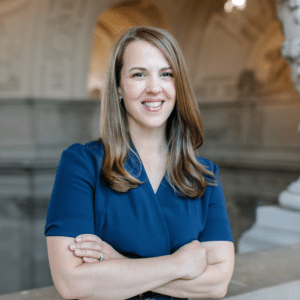By ProFellow Founder, Dr. Vicki Johnson
Many fellowships require a project or research proposal describing exactly what you plan to do during the fellowship period. The Project Proposal question in the fellowship application may be a series of questions, and it’s important you answer each one in your essay. Below is a list of the common questions, and what the fellowship committee really wants to know:
1. Question: What is the topic of your research?
What they’re really asking: Can you concisely explain your research question and goals?
2. Question: What is the purpose and merit of the research?
What they’re really asking: What will this research contribute to your field and to society, and are these contributions significant? How will the success of this research reflect on the fellowship organization?
3. Question: What is the research methodology?
What they’re really asking: Is the proposed research feasible in the time period of the fellowship, and will the candidate have adequate resources? Is the research over-ambitious or under-ambitious?
4. Question: Describe your research qualifications.
What they’re really asking: Why should we believe you can successfully pull this off?
5. Question: How will you disseminate the results of your research?
What they’re really asking: Do you know the important people, journals, conferences and organizations in your field?
6. Question: What are the benefits of this project to you personally?
What they’re really asking: Are you passionate about this work? Will the completion of this research advance your career goals? Why is this fellowship opportunity more important to you than other opportunities?
Before you begin writing in earnest, it is a good exercise to develop several project proposal ideas and share them with former fellows, professors, colleagues and friends. In my previous post, I discuss the importance of tying your project ideas to something in the news and something time-specific.
Similar to my advice for preparing a strong personal statement, my advice for preparing a project proposal is to start by breaking down the questions and drafting potential answers in bullets. Once you have several bullet points under your questions, take the best ideas to begin writing sentences that directly answer the questions.
Think carefully about the methodology you are proposing. Proposing a project that is overly ambitious is as dangerous as proposing a project that is too simple. If you have a lot of uncertainty in some aspects of your proposal, such as access to research participants, ethics issues, and costs, I strongly suggest you propose a modified version, or even a completely different project, that allows no uncertainty about your ability to complete the research. For obvious reasons, fellowship organizations do not want to fund projects that may not succeed. Get as much advice as possible from professors, colleagues and experts on your methodology.
As I mentioned previously in this series, I recommend applicants tie their project proposal to something in the news, and something time-specific. What I mean by the former is figure out how your topic could relate to a current event or policy issue that a lot of people are talking about (i.e. political extremism, clean energy, social media, the recession, gun control, health care reform, separation of church and state, you get the picture…). Topics that relate to current events often get more notice by fellowship organizations because they are more likely to gain media attention.
What I mean by the latter is try to link your project to an event or phenomenon that is only happening during the time period of the fellowship and cannot happen again or will not happen in the foreseeable future – for example a scientific meeting of experts in your field, the impact of new legislation or the consequences of a recent event such as a community’s recovery from a recent disaster. This will add an element of urgency to your project proposal. If a selection committee has to choose between two equally strong candidates, they will likely lean toward the candidate whose research proposal is more urgent due to the timing of the phenomenon he or she is seeking to study.
Another piece of advice I give to fellowship applicants, particularly those applying to a fellowship abroad, is figure out a way to incorporate travel in your research. You can propose a project that will chain you to a desk or a lab bench 5 days a week, but why not propose a project that requires focus groups, interviews or observations in different parts of the country? Your fellowship may allow you to travel on weekends, but if you can, make travel part of your job. That’s what I did.
The best tip to writing a strong project or research proposal for your fellowship application is the knowledge that you don’t necessarily need to do exactly what you proposed once you win the fellowship. Project goals often change once they are started due to new information or opportunities, resource constraints, or an improved focus. For the application, what is most important is your ability to effectively convey an idea and an approach. For fellowship committees, the strength and effectiveness of your project proposal is the best indicator of your success.
Next: #8: Get a Great Recommendation Letter

Dr. Vicki Johnson is Founder and CEO of ProFellow, the world’s leading online resource for professional and academic fellowships. She is a four-time fellow, top Ph.D. scholar, Fulbright recipient and an award-winning social entrepreneur. She is the Creator and Director of Fully Funded, an award-winning online course and mentorship program for graduate school applicants seeking to find and win full funding.
© Victoria Johnson / ProFellow, LLC 2012, all rights reserved.